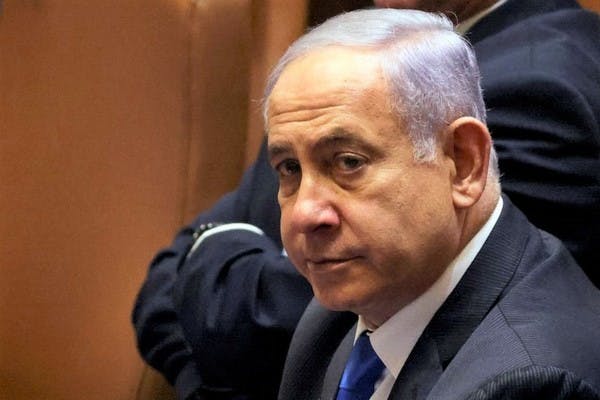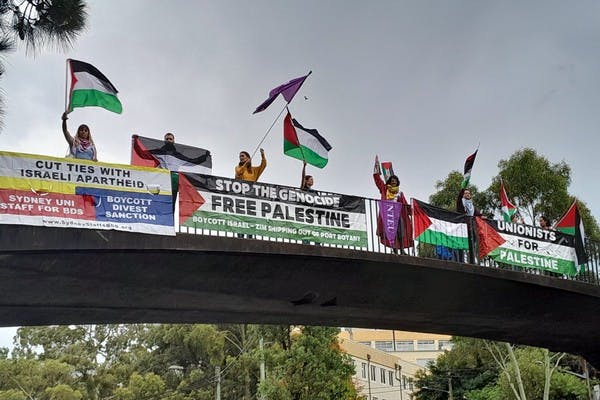Published: 5 December 2023
Last updated: 5 March 2024
JONATHAN FREEDLAND, HOWARD JACOBSON and others on morality, genocide accusations and rethinking dovish misconceptions.
In its war against Hamas, Israel faces a tragic choice between two different routes to disaster (Jonathan Freedland, Guardian)
Even if you believe that almost any death toll in Gaza would be a morally acceptable price to pay for the absolute defeat of Hamas, you would struggle to defend the current Israeli strategy – because few believe it will, in fact, result in the absolute defeat of Hamas.
In Israel last week, I spoke with a senior figure on the country’s right who privately confessed his fear that Israel’s offensive had barely degraded Hamas as a fighting force. He estimated that Israel had killed perhaps 5000 Hamas men (whose deaths, incidentally, should be counted in that 15,000 figure, too often misunderstood to refer solely to civilians). That would leave a Hamas military wing still numbering between 20,000 and 35,000. In his view, the survival of even a fraction of that number, along with a few leaders, could be cast by Hamas as a symbolic victory. Yet, if the past seven weeks are any guide, how many more Gazan deaths would it take even to reach that point?
The problem goes deeper. If the only way to defeat Hamas is to bomb civilian areas – because that’s where Hamas operates – then this could be one of those goals that slips further out of reach the more you pursue it. Because loss of civilian life serves as a recruiting sergeant for Hamas, sowing hatred in the hearts of the bereaved. I know the pain a single bomb can inflict; how its impact is felt down the generations. I know it because it is the story of my own family. Some survivors remain admirably free of the urge for revenge – but not all.
In this way, morality and efficacy are linked. If Israel’s chosen course of action cannot achieve its stated goal, then it becomes much harder to justify both the action itself and its human cost.
Rethinking our dovish misconceptions (Shahar Seifer, Ynet)
We thought that a new generation who grew free of military occupation would accept the two-state solution, Israelis would return to their lawful borders and achieve their ever-longing security while Palestinians prosper.
Instead, the Palestinian Authority and Hamas taught their children a mindset of denying any right of Jews to live by their side. Even in educated, informative coverage of the Arab-Israeli conflict, crucial facts were omitted and facts twisted so the reader would believe that the Israeli side was completely in the wrong.
Interviews with Palestinian youngsters today reveal a uniform opinion that ignores the complex truth and recognises only one justice: to throw out all Jews “from the river to the sea”. Unfortunately, pro-Palestinians in the world also call to free Palestine without having an idea of what that means.
I would just ask supporters of “free Palestine” to explain what exactly they are calling for. Palestinian youngsters do not only ask for the private land of their grandparents; they want the entire land, with people already living there lawfully exactly like Americans in America.
People who support this cause should consider their responsibility for a possible near future that would see Jews thrown out of their homes, killed or exiled. Jews would become refugees as they have been numerous times throughout history. Those who favour this would learn too late that justice would not be restored to anyone in this land.
Charging Jews with genocide is to declare them guilty of precisely what was done to them (Howard Jacobson, Guardian)
When is a genocide a genocide? The word is much in vogue, though its precise meaning – the intentional destruction of a people – is hard to justify in the case of Israel’s bombardment of Gaza, which, though without doubt brutal in execution and heartbreaking in effect, falls a long way short of any ambition to exterminate an entire population.
Genocides don’t leaflet the populations they want to destroy with warnings to stay out of harm’s way, and Hamas, which Israel avowedly does want to see the back of, is not the Gazan people. For all the sensationalist pronouncements of academics who specialise in genocide, ethnic cleansing, apartheid, settler-colonialism, etc, the words simply flutter like so many pennants at a medieval joust. Denoting, in the fading light, which side you’re on, no more.
Words matter in war, and when a vocal third party to a war operates from the campuses of western universities, where words go off like hand grenades, we must be careful which we choose. Among the casualties of this war are the young, who are susceptible to lurid language and who get their disinformation from the internet and their rhetoric from their professors. We have been here before but with this difference: the vilification of Israel is more scurrilous and orchestrated this time because on 7 October Hamas breached not only a fence but a decorum that in the past has marked us out as civilised. We don’t – we didn’t – turn the traumatic history of a people into a justification for hating them. Post October 7, we can say things about Jews we haven’t dared say before. At last, we can throw the Holocaust back in their teeth.
Netanyahu is the last person who could de-radicalize Gaza (Zvi Bar’el, Haaretz)
Israel must demilitarise Gaza and then de-radicalise its population, as the Allies did in Nazi Germany, Benjamin Netanyahu said this week to the right-wing German TV news channel Die Welt. Otherwise, he asked, what’s the point of eliminating Hamas?
Netanyahu didn’t say why only Gaza should be demilitarised and not the West Bank, and, most importantly, how he intends to demilitarise Gaza. Even within Israel, he can’t collect all the weapons held by murderous gangs. But the more fascinating part of his vision was his idea of de-radicalising the population.
Netanyahu knows all too well how to radicalise populations. He’s a globally renowned expert. De-radicalisation, on the other hand, could be an interesting experience for him. But until he studies the material, he could rely on the examples of leaders with some experience in this.
Netanyahu is stuck as he battles Hamas: he can’t afford to lose, yet can’t find a way to win (Alon Pinkas, Guardian)
Benjamin Netanyahu should have resigned after an hour, then a day, then a week and a month after the October 7 debacle, the most horrific day in Israel’s history. He did not, because he isn’t wired that way. Accountability and integrity are alien concepts reserved for the weak and feeble – not for him. He sees himself as a historic figure, responsibility as beneath him. He is not merely defiant, but terrified that his trial for corruption and bribery would proceed if he was to resign, and paralysed by the thought that he and the state will no longer be one.
Ever since 6:29am on October 7, he has been on the defensive; trying to salvage himself by deflecting responsibility on to the military and the Shabak (Israel’s internal security service), blaming faulty intelligence and devising a parallel narrative in which he is now leading Israel in a second formative war of independence to try to save western civilisation from Islamo-fascism. A man who likens himself to Winston Churchill has fallen short of the example set by Neville Chamberlain, who resigned in 1940 after the German conquest of Norway.
The trajectory of the war puts two sets of pressures on Netanyahu: one is domestic, and the other is American. Netanyahu has a major credibility deficit in the US. This goes back many years and spans several presidents, but with Joe Biden it was compounded during the first nine months of 2023, when he launched a constitutional coup disguised thinly as “judicial reform”. Biden publicly disapproved of Netanyahu’s authoritarian turn and noticeably refrained from inviting him to Washington during that period.




